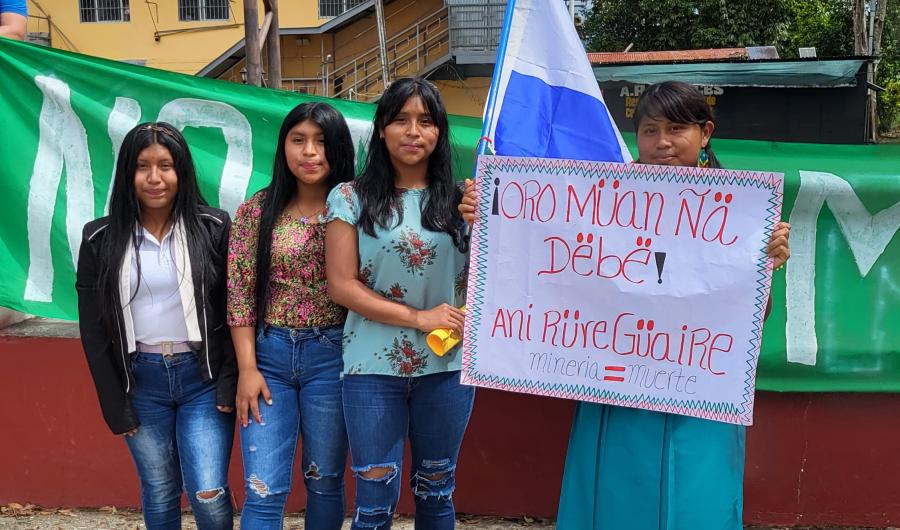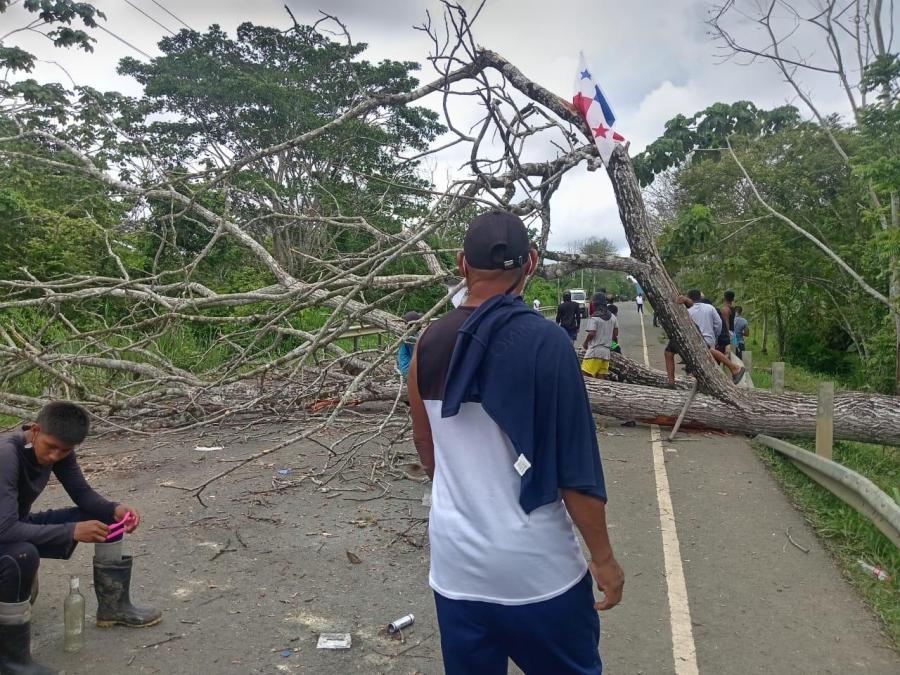Panama’s president Ricardo Martinelli announced today that he would revoke a reform to the country’s mining law that provoked thousands of Ngöbe Indigenous people to protest by blocking major highways over the past weekend. The Ngöbe, along with human rights advocates and environmentalists, saw the reform as a means to open Indigenous territories to exploitation by multinational mining companies. Specifically, the reform permitted investment in mining projects by foreign governments. China, South Korea, and Singapore reportedly are eager to exploit Panama’s copper and gold reserves, most of which lie within Ngöbe territories.
This is the second time in the last six months that Ngöbe protests have forced Panama’s president to revoke laws. In October, Martinelli agreed to revoke Law #30 in response to Ngöbe protests the previous July which were violently repressed by Panama police. Law #30 had favored multinational corporations by eliminating the requirement for environmental impact studies, limiting the right of workers to strike, and granting immunity to police officers who violate the human rights of protesters.
Cultural Survival’s Global Response program organized an international letter-writing campaign to support the Ngöbe in their struggle to defend their rights and prevent exploitation of their lands and natural resources against their will. See our campaign materials HERE.
Panama’s President Announces Revocation of Mining Law Reform
President Ricardo Martinelli announced this Thursday the revocation of a reform to the mining law that would open the way for foreign investments in the sector and whose approval had sparked the repudiation of Indigenous people and environmentalists.
“We are going to revoke this law and we are going to dedicate ourselves to continuing to work; your voice has been heard,” said the president when he arrived unexpectedly at a meeting to restart a dialog process between Indigenous peoples and the government with the presence of representatives of the Catholic Church as a mediator.
The meeting was held in San Felix, some 420 kilometers east of the capital and one of the main sites of protest in Chiriqui province.“We can’t get stuck in a sterile debate where Panamanians don’t want mining independently of whether the law was bad or good; the Panamanian doesn’t understand what mining is and so in this responsible way we are going to revoke Law #8,” said the president.
The reform was approved in mid-February in spite of rejection by environmentalists and Ngöbe Bugle Indigenous people who resorted to protests last week with blockades on several sections of the Panamerican highway that connects with Costa Rica.
A dialog between the government and ethnic groups that demand a new law with assurances that mining will not be promoted in Indigenous territories was taken up again Thursday when Martinelli went by helicopter to San Felix.
The president said he will later create a special cabinet-level consultation to approve his revocation of the reform to the Mineral Resources Code.
The protests involved confrontations between police and Indigenous people and at the end of last week left some 20 injured, including four police, and at least five persons jailed.
The Ngobe Bugle people, numbering some 260,000, reject open pit mining in fear of the environmental damages it may cause.
Experts affirm that if exploited, the enormous deposits of copper and gold in Ngobe Bugle territory would place Panama among the world’s ten top copper exporters.
Opposition politicians, environmentalists and human rights organizations said that the law undermines Panama sovereignty by leaving open the possibility that foreign governments would finance mining companies in Panama.
The government said that the reform was intended to regulate an industry that was governed by an old 1964 law, facilitate access to financial resources for potential investors, and bring progress to the economically poor areas where mining would take place.


